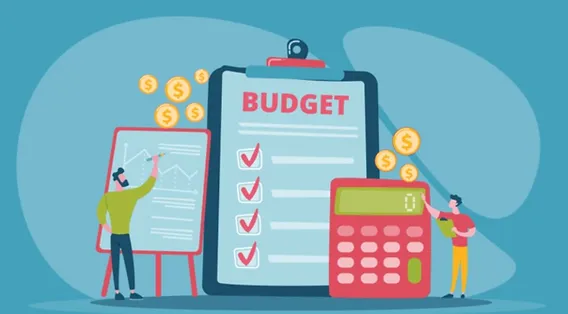How to Get Credit: A Step-by-Step Guide to Building Financial Power
The Key to Unlocking Financial Freedom Starts Here
Struggling to get approved for a loan, a credit card, or even a mortgage? You’re not alone. The financial system is designed in a way that rewards those who understand how to navigate it, while leaving others behind. If you’ve ever felt frustrated by rejection, confusing credit terms, or the seemingly endless obstacles to securing financial leverage, you’re in the right place.
Understanding how to get credit isn’t just about getting approved—it’s about positioning yourself for long-term financial success. This guide unveils the most effective, strategic, and often overlooked methods to establish and strengthen your credit profile.
Why Credit Matters More Than You Think
Your credit score isn’t just a number—it’s a gateway to financial opportunities. From getting the best interest rates to securing a home or even landing a job, your creditworthiness plays a pivotal role in life’s biggest decisions. Strong credit can mean:
- Lower interest rates on loans and credit cards
- Higher approval odds for mortgages and auto loans
- Access to premium credit card perks and rewards
- Better rental and employment opportunities
The question isn’t whether you need credit; it’s how to get credit in a way that maximizes your financial potential.
Step 1: Establish Credit from Scratch
If you’re starting from zero, gaining traction might feel impossible. Here’s how to break into the system effectively:
1.1 Apply for a Secured Credit Card
A secured credit card requires a refundable deposit, which acts as collateral. Many banks report your responsible usage to major credit bureaus, helping you build a track record.
1.2 Become an Authorized User
If a family member or friend has an established credit card with a positive history, being added as an authorized user can quickly boost your profile.
1.3 Open a Credit Builder Loan
Many credit unions and fintech companies offer small loans designed to build credit. You make monthly payments, and upon completion, you get the deposited amount back—plus a history of on-time payments.
1.4 Use a Rent or Utility Reporting Service
Several services allow you to report rent and utility payments to credit bureaus, helping you establish credit without taking on new debt.
Step 2: Optimize Your Credit Score Quickly
Already have some credit but want to improve your score fast? Follow these strategies:
2.1 Keep Your Credit Utilization Low
Credit utilization—the percentage of your available credit you’re using—is one of the biggest factors affecting your score. Keep it below 30%, and ideally under 10%, to maximize impact.
2.2 Request a Credit Limit Increase
Increasing your credit limit while maintaining the same spending habits can improve your utilization ratio and boost your score.
2.3 Pay Off Balances Strategically
Making multiple payments throughout the month keeps your reported balance lower, which improves your score.
2.4 Dispute Errors on Your Credit Report
Mistakes on your credit report can drag down your score. Regularly review your reports from Experian, Equifax, and TransUnion, and dispute any inaccuracies.
2.5 Diversify Your Credit Mix
A mix of credit types—such as installment loans, credit cards, and retail accounts—demonstrates responsible management of different credit lines.
Step 3: Unlock Advanced Credit Strategies
Once you have a foundation, take your credit game to the next level with these high-impact tactics:
3.1 Leverage the 15/3 Rule
Instead of making one monthly payment, pay half your balance 15 days before the due date and the other half three days before. This can lower your reported balance and improve your score.
3.2 Open New Credit Lines Strategically
Applying for too many credit accounts at once can trigger hard inquiries, temporarily lowering your score. Space out applications to minimize impact.
3.3 Use Balance Transfers Wisely
If you have high-interest debt, transferring it to a 0% APR credit card can save you money and accelerate debt payoff—just be mindful of fees and promotional periods.
3.4 Keep Old Accounts Open
The length of your credit history matters. Even if you don’t use an old credit card, keeping it open (with occasional small charges) can help maintain your score.
3.5 Time Your Credit Applications Strategically
Planning a major purchase? Improve your score beforehand by reducing utilization, paying down debt, and avoiding unnecessary inquiries.
Frequently Asked Questions
How long does it take to build credit?
Building credit from scratch can take 3-6 months for an initial score and up to a year for a strong rating. Consistent responsible use speeds up the process.
What’s the fastest way to improve my credit score?
Reducing credit utilization, making on-time payments, disputing errors, and becoming an authorized user can yield quick improvements.
Can I get credit with no job?
Yes. Many credit options exist for individuals without traditional employment, such as secured cards and credit builder loans. Having an alternative income source can also help.
Will checking my credit score lower it?
No, checking your own score is considered a soft inquiry and does not impact your credit. Only hard inquiries (from applying for credit) can temporarily lower your score.
Final Thoughts: Take Control of Your Financial Future
Knowing how to get credit is just the beginning. The key to lasting financial strength is using credit wisely, maintaining responsible habits, and continuously improving your score. Whether you’re starting fresh, recovering from past mistakes, or looking to maximize your financial potential, the right approach can open doors you never imagined possible.
Start today by taking one step—apply for a secured card, dispute an error, or lower your utilization. Your financial future depends on it.
What’s your next move? Let us know in the comments, or explore more ways to elevate your financial game!


